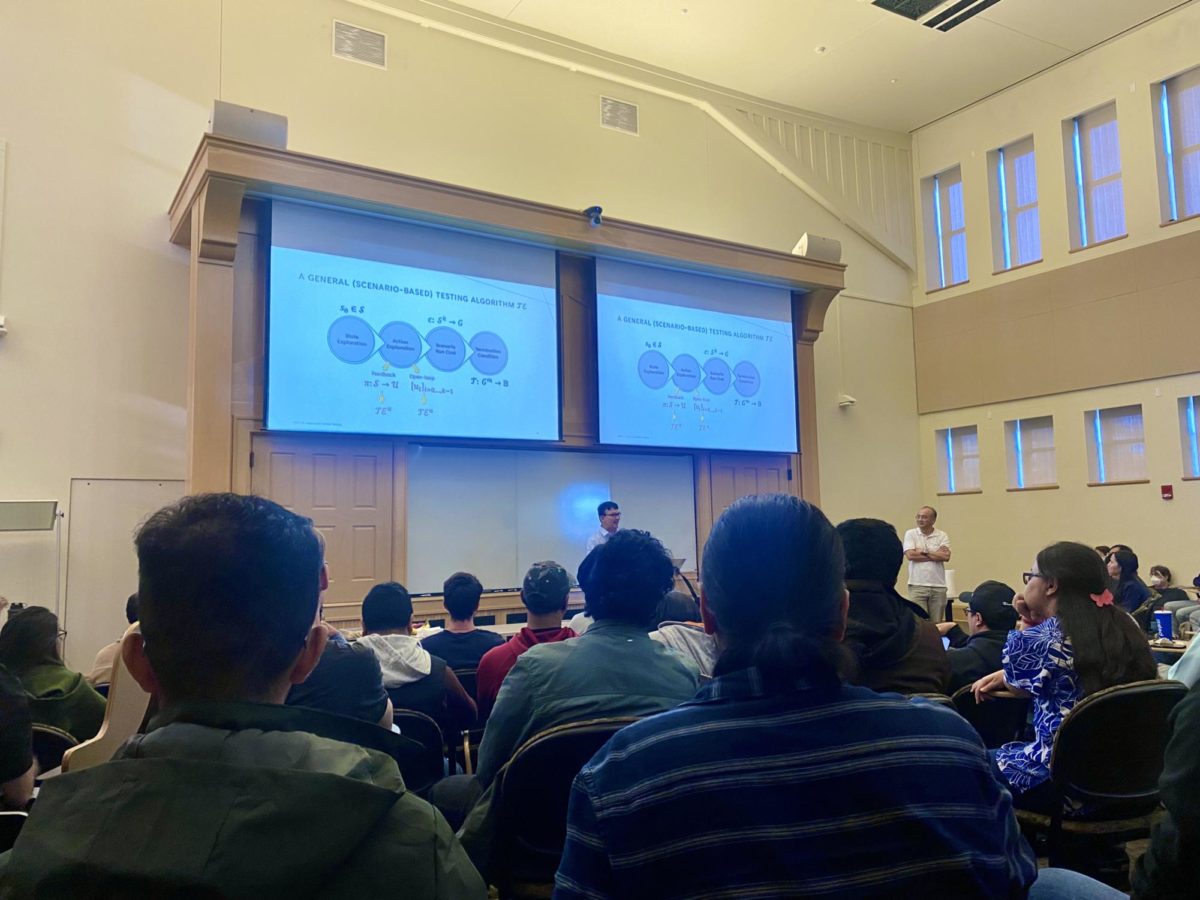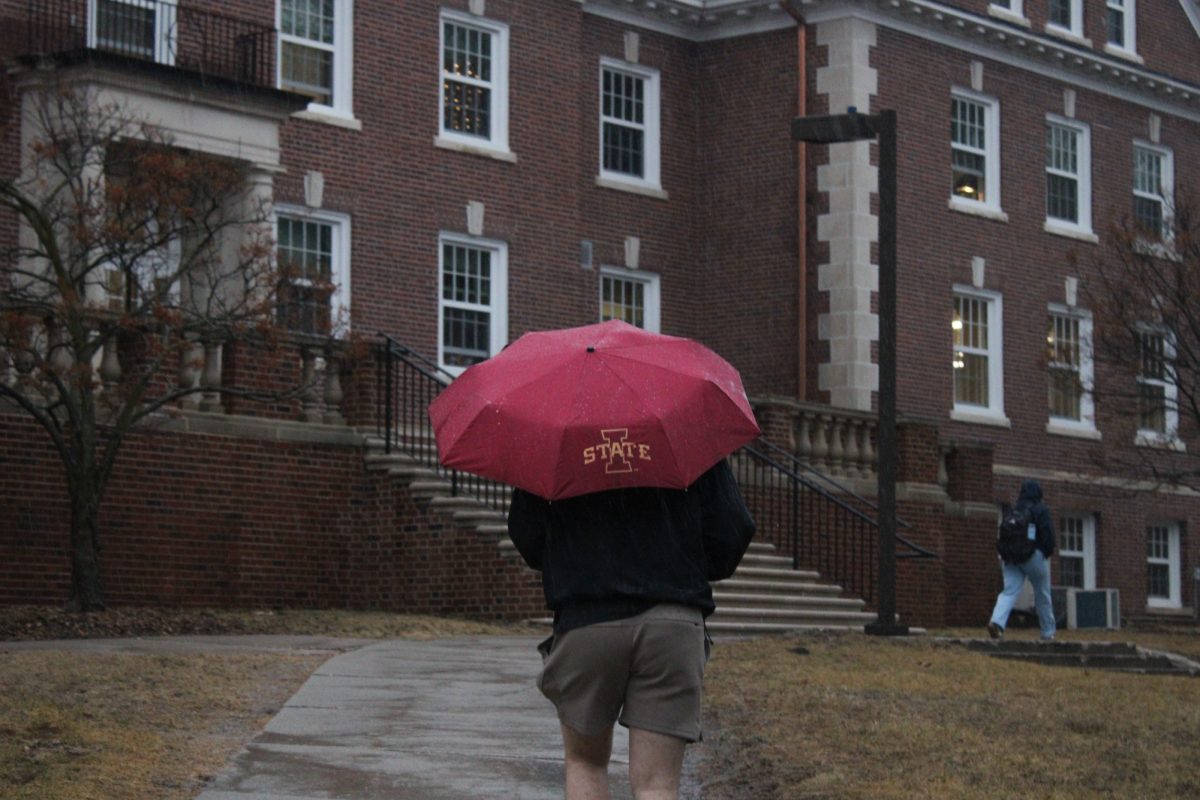Ohio State University’s Dr. Bowen Weng criticized American car manufacturing for prioritizing speed and power over safety, advocating for artificial intelligence driven safety testing.
Weng is a research scientist at Transportation Research Center (TRC) Inc. and specializes in projects related to safety testing and performance evaluation of Automated Driving Systems (ADS). Weng’s research focuses on autonomous safety with an emphasis on its applications within intelligent vehicles and legged robots.
Hosted by the Iowa State Department of Computer Science, Weng’s lecture kicked off at 4:25 p.m. on Sunday in a packed Morrill Hall lecture room. Over 20 attendees stood at the back of the room after the lecture hall’s seats had completely filled to capacity 10 minutes prior to the intended start time.
“I couldn’t believe how many people were there,” Kaleb Gauf, a junior in mechanical engineering, said. “He definitely gave a good talk, so I can see why so many people wanted to be there.”
Weng began his talk with a rhetorical analogy about a merchant selling a spear and a shield.
“The merchant tells you, my spear is the strongest, it can crack anything… Then he tells you, my shield is unbreakable, it can protect you from anything,” Weng said.
Weng proceeded to draw a comparison to the two contradicting metrics of safety testing: leading and lagging safety.
Weng elaborated that leading safety centers around the use of proactive safety measures while lagging safety focuses on reactive measures after an incident has already occurred.
The lecture then pivoted to focus on the use of autonomous safety, specifically within automobiles.
“Americans build fast cars, powerful cars, beautiful cars, but never safe cars,” Weng said.
Weng then elaborated on the process of safety testing and how the individuals behind it approach the issue.
“We say crash, we say collision, we say event, but never accident,” Weng said. “Our goal is to try to find out what happened during a crash, and try to make sure it never happens again.”
After elaborating on the intricacies of his research, Weng concluded the lecture by answering questions from the audience.
When asked if there was a universal solution to the use of autonomous safety, Weng said, “It makes me happy that there is no solution, given that it means I now have a permanent job guarantee.”
The lecture drew to a close with a summary from the lecture host, computer science professor Yan-Bin Jia, and a standing ovation from members of the audience.
“Today what I learned most was the complexities behind autonomous vehicles and how far we still have to go within that field,” Jia said.
The lecture offered insight to those both within and outside the computer science department as audience members were able to expand their knowledge of artificial intelligence and the use of robots within safety testing.
“We are going to have more robots, we are going to have intelligent robots, we are going to have more intelligent robots that are going to cause more problems,” Weng said.













